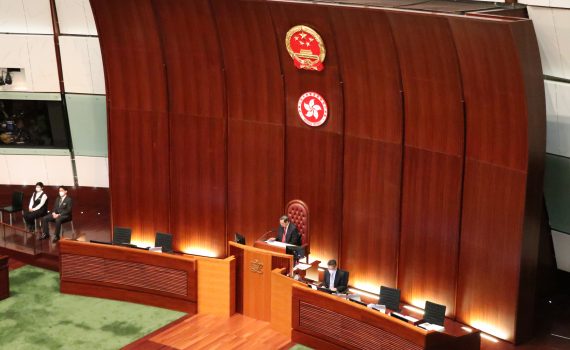All “spicy measures” for housing will be cancelled, said Financial Secretary Paul Chan Mo-po in his latest budget speech on Wednesday, referring to stamp duties paid on property purchases.

Known as “laat ziu” in Cantonese, spicy measures meant locals buying a second property, non-local residents and companies had to pay up to 7.5% of the original property prices, which was cut from 15% in October 2023.
Additionally, people who wished to resell their property in two years had to pay up to 7.5% of the resale price.
“These stamp duties are unnecessary for the current economic and market situation,” said Chan.

Leung Ka-ki, 37, a salesman at Festival Walk, is happy to see the stamp duties gone as it helps him save money to buy a property as soon as he can.
“People didn’t buy properties because they had to pay the stamp duty previously,” said Kelvin Leung, senior property consultant of Midland Realty, “The cancelled cooling measures will greatly attract investors from home and around the world to buy properties in Hong Kong.”
Property sales increased slightly after the government halved the stamp duty in October, though sales have not yet reached the high earlier in 2023.
Chong Tai-leung, executive director of Lau Chor Tak Institute of Global Economics and Finance, also predicts an increase in property sales. “The immediate impact of the cancellation will be the increased volume of property transactions,” Chong said.
However, buyers will still compare the return of depositing the same amount in the bank, Chong said.
Chong said the effectiveness in boosting the property market in the long term may not be that effective, as the main force driving the market down is the interest rate, which the government cannot control.

Andre Wong, 45, who owns an apartment in Kowloon Tong, said he would not consider buying another property.
“The prices for owning a house are still high. Those who can afford to buy properties would not mind the additional duties. I would rather put my money in the bank as my insurance,” said Wong.

(Photo by: Ng Wai-ling)
《The Young Reporter》
The Young Reporter (TYR) started as a newspaper in 1969. Today, it is published across multiple media platforms and updated constantly to bring the latest news and analyses to its readers.

Budget 2024 Key Takeaways: Careful balance of revenue and deficit to continue

Budget 2024: Government to expand cross-boundary data flow and services




Comments